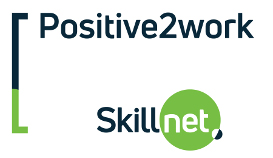Six Sigma
- 17th September 2024 - 4th December 2024
10:00 am - 12:30 pm
Course duration: Five Day Training Course
Additional notes for course:
Venue: Virtual Online
Not a member? Find out if your company is eligible here
Course overview
Lean Six Sigma has become the fastest spreading and most successful approach to Continuous Improvement across all industries regardless of size, position in the supply chain or service provided. An essential element of Six Sigma roll-out is Green Belt training. This Green Belt workshop will expose delegates to the powerful tools and methodology necessary to successfully lead and contribute to DMAIC improvement projects within the organisation.
Aims and objectives
- To understand the concept of Six Sigma and the DMAIC approach to process improvement.
- To understand the tools involved in the Define, Measure, Analyse, Improve and Control phases.
- To understand the use of the tools in characterising a process, analysing process data, and controlling processes.
- To practice the key tools via projects or simulation exercises.
- To learn the basics of the SigmaXL™ Software which will be used throughout the course
Who should attend
This course is intended for front line problem solving personnel responsible for resolving process problems in day-to-day operations or responsible for leading Continuous Improvement teams. It is also intended for those working with Six Sigma Black Belts on major improvement programmes or looking for breakthrough performance in key business metrics. Skills that are considered necessary for successful participation in the Green Belt programme include good communication skills and a willingness to learn.
Course content
- Define & Measure
- Standardisation and Simplification
- Mistake Proofing
- Process Control Plans
- Ongoing Process Monitoring
- Project Report out
- Cause and Effect (XY) Matrices
- Root Cause Analysis
- Failure Mode and Effect Analysis (Predictive Risk Management)
- Creative thinking
- Managing Change
- Introduction to Continuous Improvement and Six Sigma
- Understanding variation and waste
- Understanding Customer Requirements (VoC, SIPOC, CTQ)
- Project Charter (Problem Statement, Business Case, Metrics, Stakeholders, project plan)
- Process Mapping (Deployment & IPO)
- Graphical Analysis using SigmaXL (or agreed alternative)
- Team Dynamics and Tools
- Statistics of a process (Capability, Control, MSA)
- Control
- Analyse and Improve
Project:
A Project Charter must be submitted to the tutor prior to commencement of training. Comprehensive guidelines on project selection and a sample Project Charter will be supplied in advance to all course delegates. The delegate has up to 6 months following training to complete their project.
Each delegate is required to complete an individual Six Sigma Green Belt project which, using the DMAIC methodology, will realise the project goals and objectives for their company.
Software:
This course uses SigmaXL software. There is a requirement for delegates to bring a laptop with the most recent version of SigmaXL. On Public courses, this will be supplied to delegates by the training company and is included in the course fee. On In-House courses, the training company can supply the software licences if required or should your organisation currently used an alternative software package (such as SPCXL or Minitab), this may be used with the agreement of the course tutor.
Certification:
Our Green Belt programme is accredited by QQI and successful delegates will receive a QQI Level 7 award in Process Engineering (10 Credits). Green Belt Assessment is based on the Project Proposal (Charter & Plan) and a written Project Report on project completion.
Project Review:
In-House courses may request a follow-up on-site Project Review Day with the tutor where each Green Belt will present their project showing the methodology used and results achieved (note that an additional cost applies for this option).
TRAINING METHODOLOGY
This classroom based course is highly interactive and uses practical exercises, simulated case studies and projects to reinforce tool understanding and learning. The training is enhanced by the vast experience of the tutors who have trained hundreds of Green Belts and Black Belts as well as completing numerous transactional and manufacturing projects themselves.
Certification
Leading to a QQI Level 7 award in Process Engineering
